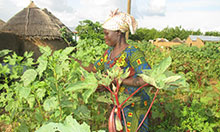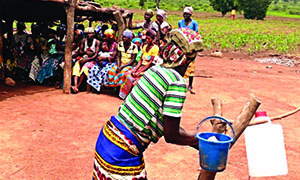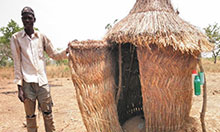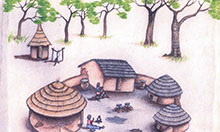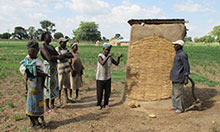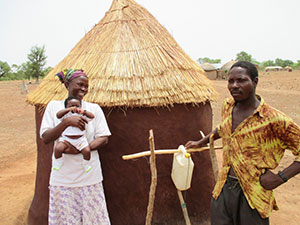
A primary focus of our work in Ghana is the WASH 1,000 approach, which promotes four key behaviors related to water, sanitation and hygiene (WASH) activities during the first 1,000 days. This time period, spanning the mother’s pregnancy to the child’s second birthday, is critical for child growth and development. The four WASH 1,000 behaviors SPRING promotes are:
- safely disposing of feces,
- handwashing,
- using only boiled or treated water for consumption by children aged 6 – 24 months, and
- ensuring children have clean play spaces.
When practiced regularly, these actions reduce the likelihood of infection, especially through fecal-oral contamination. WASH 1,000 behaviors also play a role in reducing stunting, preventing anemia, and improving nutrition. In Ghana, we are working in 15 districts: 4 in the Upper East region and 11 in the Northern region. Our community-level trainings in these districts begin with teaching about the importance of community led total sanitation (CLTS), which “trigger” community members to build latrines. CLTS serves as the community entry point for our WASH 1,000 approach, and it is an important first step in stimulating healthy practices for all community members.
As part of our WASH 1,000 and CLTS agenda, we identify natural leaders who serve as independent “champions” working toward improving sanitation conditions and ending open defecation in their communities. These community leaders play a major role in promoting WASH 1,000 behaviors in their communities.
Through triggering events and follow-up visits, community members learn about the negative consequences of open defecation, such as diarrhea. Building latrines is a concrete way to reduce fecal contamination in food, and in FY15, SPRING recorded 3,480 newly constructed latrines and 43 communities achieved open defecation free (ODF) status.
WASH 1,000 fits into SPRING/Ghana’s larger concept of 1,000 Day Households.
